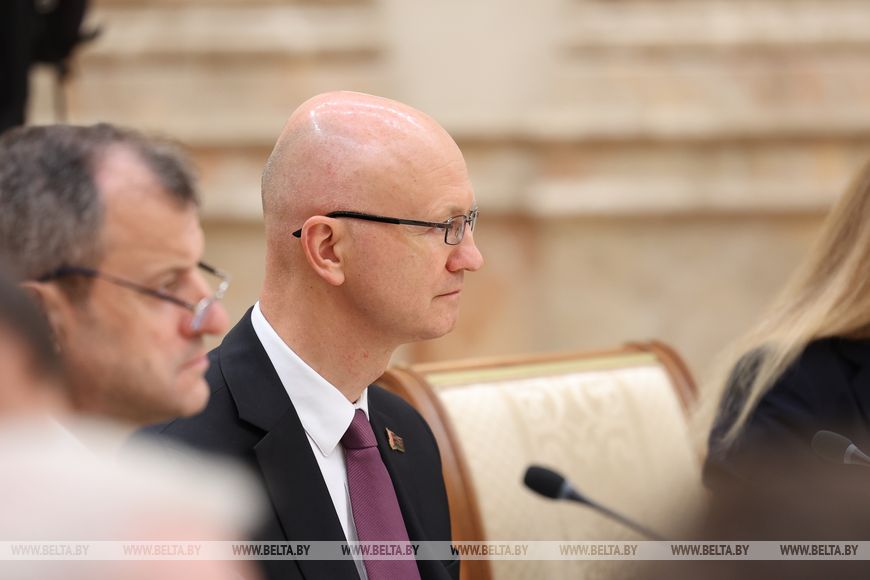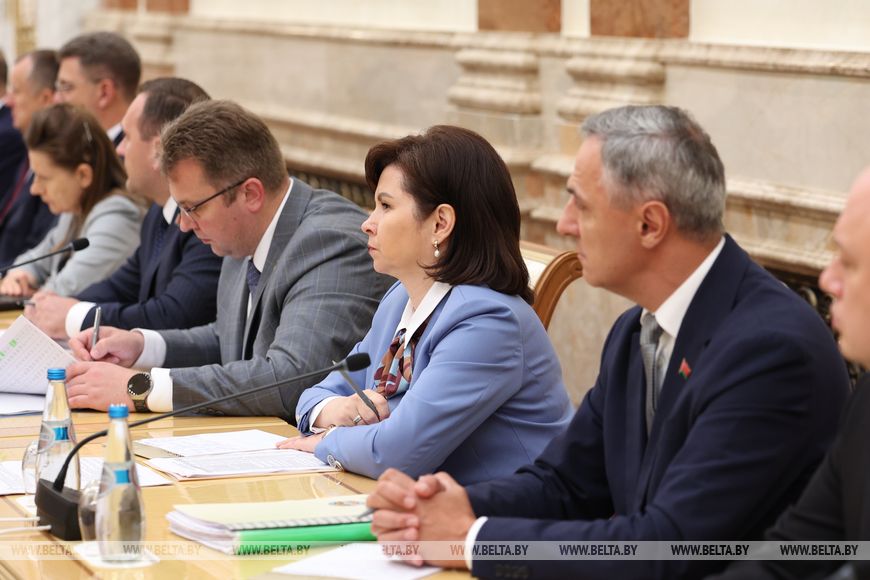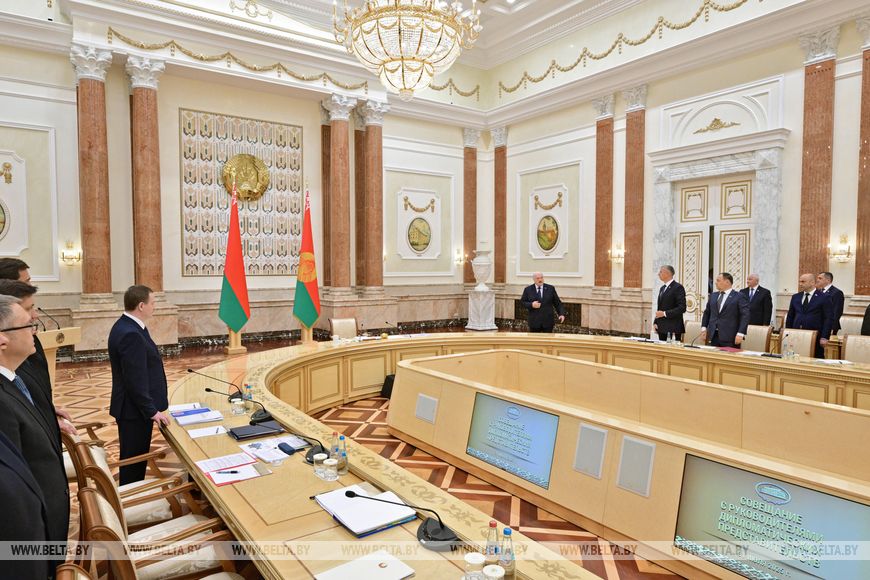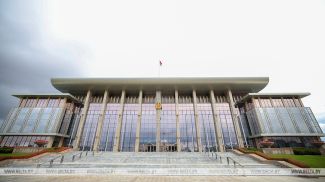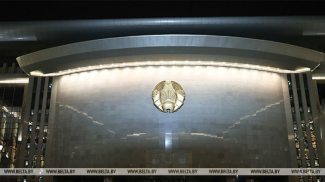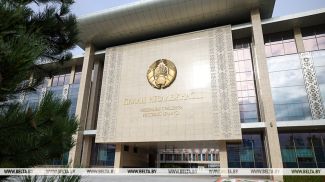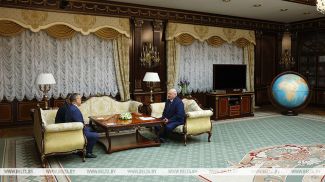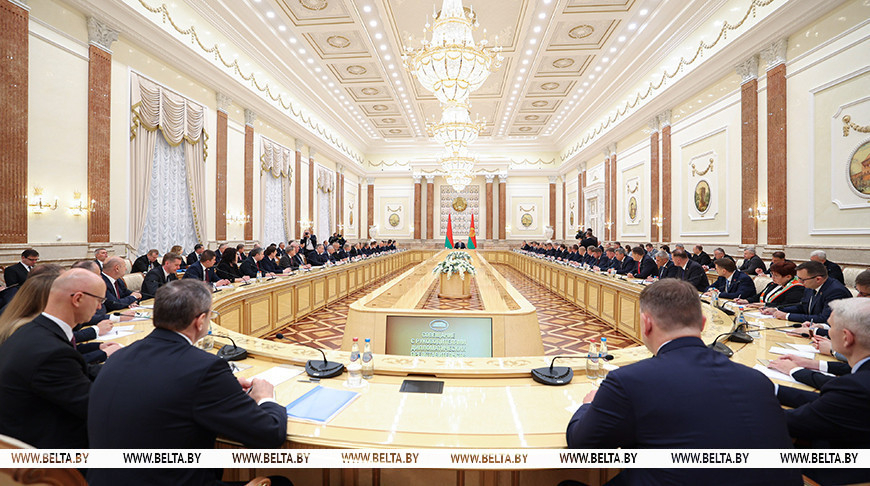
MINSK, 31 July (BelTA) - Belarus needs to fine-tune its steps on the foreign policy front, Belarusian President Aleksandr Lukashenko said as he met with heads of Belarusian diplomatic missions on 31 July, BelTA has learned.
“No matter how clear and historically validated a strategy may be, it requires constant tactical adjustments. The ability to promptly adapt actions within the framework of a broader goal is what makes governance viable and diplomatically effective. Today, we will discuss precise calibration of our foreign policy efforts, tailored to specific regions and cross-cutting issues,” the head of state said.
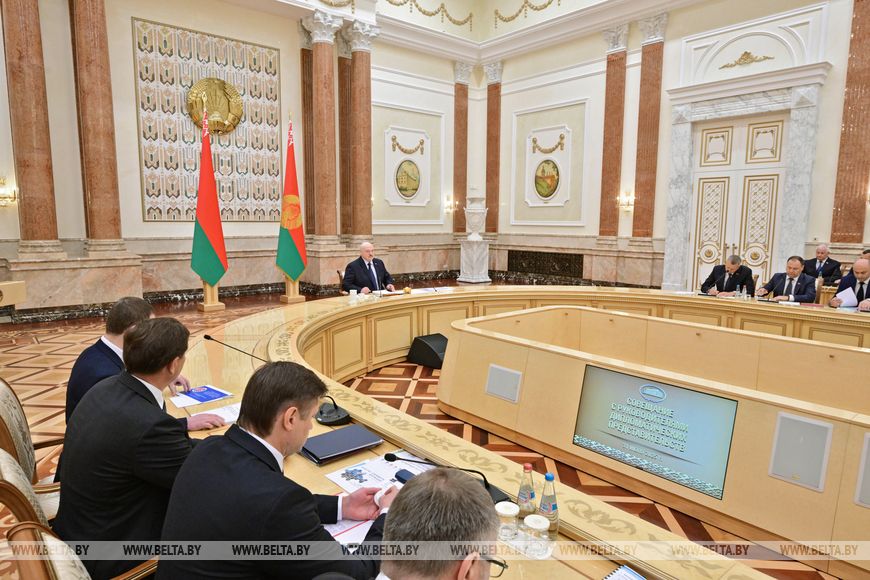
According to him, the economy remains a cornerstone for Belarus. “It is the foundation. If the economy in vibrant, we will live well and resolve all issues, be it social, cultural, or defense-related,” the president stressed.

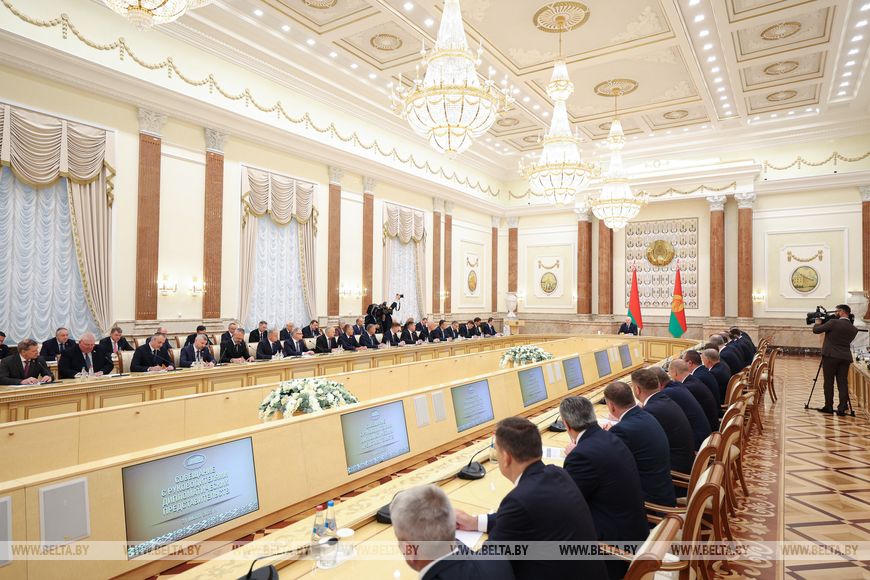
The president noted that Belarus is a medium-sized country with an open, export-oriented economy. Expanding and improving foreign trade efficiency are absolute priorities, essential for survival.
“This vulnerability of ours is being exploited by both economic competitors and political opponents, including the self-exiled opposition. Since 2020, the European Union has produced 18 sanction packages, though the pace has slowed. In 2022, they adopted five, then four, then three. This year, there has been just one so far. Have they run out of things to ban? Or have they realized they’re shooting themselves in the foot? Probably both,” the head of state said.
The president expressed confidence that success in achieving objectives depends directly on strict task execution and impeccable discipline. “You are more than military personnel. Remember: without the readiness to defend Belarus' national interests, nothing will be accomplished,” he emphasized addressing the participants of the meeting. “Or it will be accomplished, only without you. I would hate to see that happening. I truly would. I often say: you are like my children. We will never allow a repetition of 2020 in the Ministry of Foreign Affairs system.”
The head of state emphasized that every diplomatic mission leader bears full responsibility for their assigned region and country of accreditation.
“Each of you was informed about this upon appointment and received specific instructions. While economic priorities remain overarching, ambassadors are given personal tasks. Accordingly, the evaluation of their performance must be conducted on a strictly case-by-case basis,” Aleksandr Lukashenko said.
The president expressed confidence in the coordinated efforts of the Ministry of Foreign Affairs and all relevant agencies, stating: “Let me reiterate: these are wartime conditions, and diplomats are actually military personnel too.”
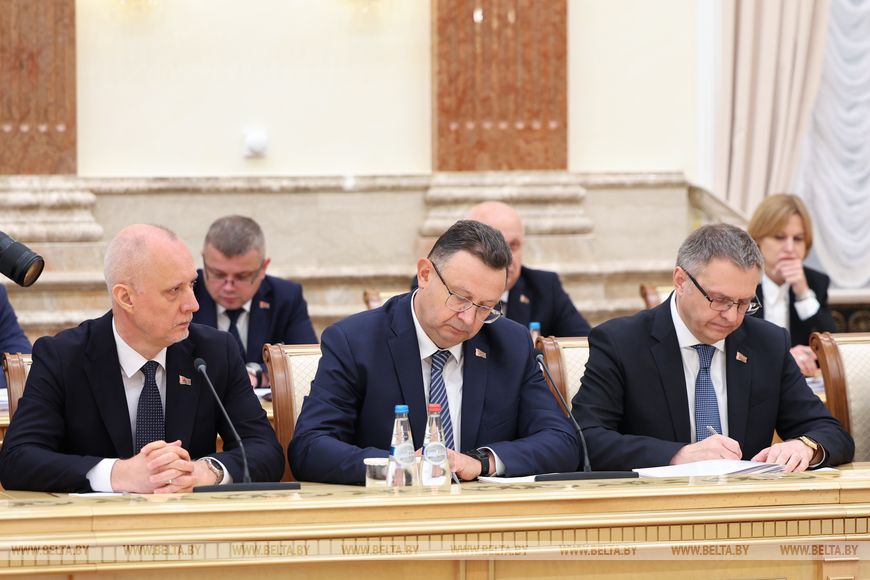
“This year and the coming years will be extremely challenging and tense. I therefore warn everyone present here, especially officials responsible for economic matters. Don't take it personally, but the pressure and expectations will only intensify. Mobilization isn't just necessary during war or military conflicts, but also in peacetime. You may consider that we are living through an exceptionally difficult peacetime that requires wartime mobilization. I want this clearly understood. We will need tough, sometimes unconventional working methods. But we need to keep our country's economy working. This is no easy task given the turmoil in international markets and the global economy,” the head of state said.
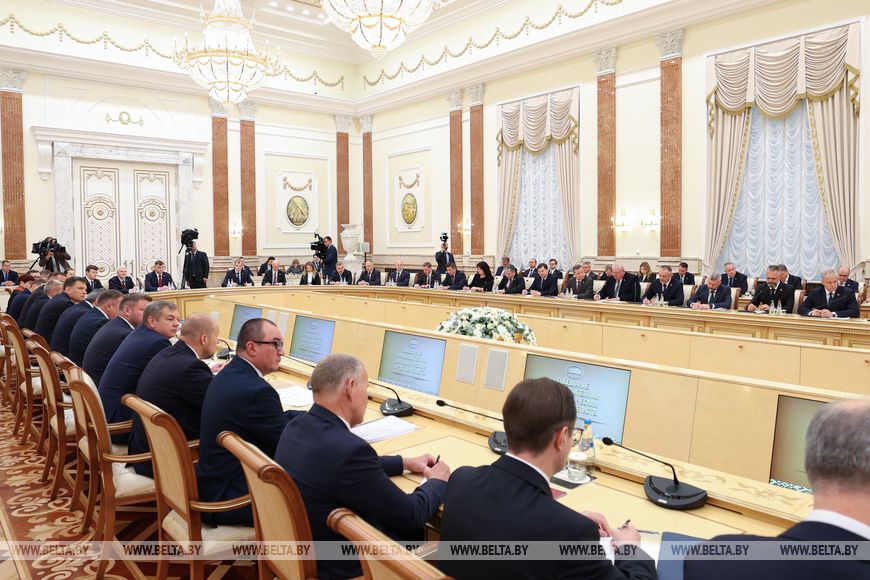
“We need to move forward. No excuses. No results mean you lose your position there. It is that simple,” the president emphasized.
“Despite unprecedented economic pressure, we have managed to keep people employed, increase their incomes, and maintain hope for tomorrow,” the Belarusian leader said.
“The Ministry of Foreign Affairs has reported which countries we should prioritize in these discussions. Concrete measures should already be in motion. Most importantly, our diplomats in the West must not remain passive under any circumstances.”
“Whether the EU turns right or left is irrelevant to us. What matters is that people are growing increasingly weary of elites who neither listen to them nor respect their electoral will. This cannot continue indefinitely. The next wave of politicians must include those you know, those who know the real Belarus,” the head of state emphasized.
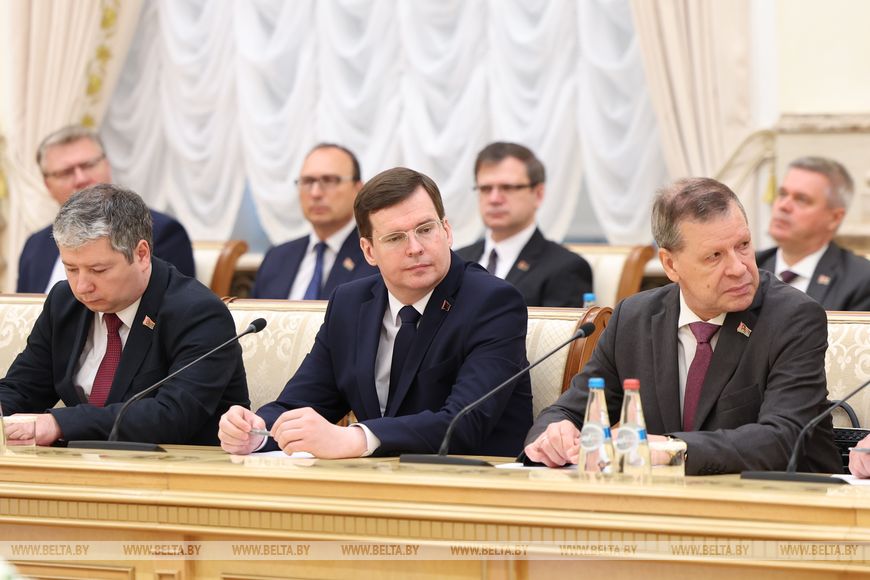
The president urged seizing every opportunity to convey the truth about Belarus to Western think tanks and media outlets. “The strategy of ‘democratization through sanctions’ has failed. You’ll soon see competition emerge among new policy concepts. Among them, reasoned voices of those you’ve engaged with must be heard,” said Aleksandr Lukashenko.
Addressing ambassadors to non-Western nations, as well as government and private sector representatives, he stated: “I've said it before in these circles and reiterate: forget about sanctions and other Western scare tactics. They don't exist for us. These are not excuses for failures or lack of results. When the EU introduces another absurd ban, view it as an opportunity to expand market share elsewhere!”
"You know Trump’s principle: ‘America First’. But perhaps that’s better than the ‘liberal world order’ that existed under Biden," the head of state remarked. "Recent meetings with the Americans have shown they are willing to listen. No groveling on our part. Trump’s return to the White House has opened a window of opportunity to improve relations. Perhaps even to clear away some of the obstacles the U.S. created, which hinder our work in global markets."
“Our objective is to seize this opportunity while firmly safeguarding Belarus' interests, refusing to make concessions that would work against us,” the Belarusian leader emphasized.
The Belarusian leader recalled human rights violations with Western neighbors pushing across the border into Belarus the corpses of migrants whom the West itself had lured its “paradise”.
“They invited them there. We have said this repeatedly. We had agreements with Western partners on many points. We even implemented this migration policy to our own detriment in some areas. Essentially, our migration policies protected them from these migrant waves by containing them here. Then, after coordinating with Russia, we signed readmission agreements to send them back home,” Aleksandr Lukashenko said. “The EU imposed completely unjustified, illegal sanctions against us. I said frankly that I won't defend you with ‘a noose around my neck’. Especially after you severed all migration policy relations with us.”
